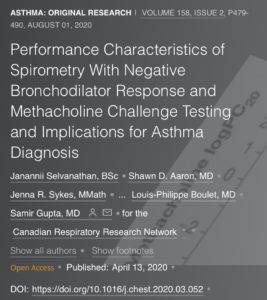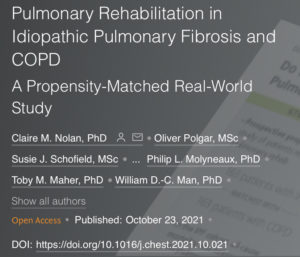
Asthma is a common disease and affects about 300 million individuals worldwide. The prevalence of smoking is similar in asthmatics than it is in the general population. Smoking leads to worsening of asthma control, and it seems to affect both functional and inflammatory markers resulting in increase in asthma severity. Active smoking results in accelerated loss of lung function.
The paper that we studied this month evaluated smoking and non-smoking asthmatics with uncontrolled moderate-to-severe asthma in adults. A total of 40 active smokers and 39 nonsmokers were included. Uncontrolled asthmatic smokers and nonsmokers had the same clinical characteristics.
The study suggested that smoking affected some of the markers, which we use to assess the level of inflammation in asthma, such as FENO (fractional exhaled nitric oxide) and sputum eosinophil count. Although blood eosinophil counts were similar between groups, the number of subjects with a high sputum eosinophil count (> 10%) was higher in nonsmokers. Asthmatic smokers had lower levels of FeNO than nonsmoker asthmatics.
The result of this study is consistent with prior evidence. In this time of precision medicine and individualized treatment it is important to understand how the inflammatory markers in asthma are being affected by exposure to smoking because the results of the tests guide the prescription of the treatment.
As a result, the physicians may underestimate the level of inflammation in their smoking asthma patients based on the test results.
In addition, the way smoking modifies airway inflammation in asthmatic individuals may influence their response to the prescribed asthma treatment.
Published: May 2022
For the full article, follow the link:
https://www.tandfonline.com/doi/abs/10.1080/24745332.2022.2043206




